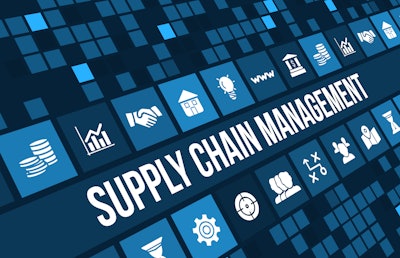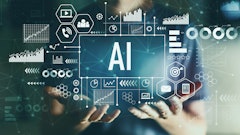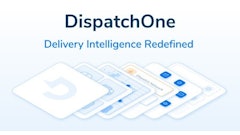
The modern supply chain landscape is undergoing a fundamental transformation. Enterprises first saw the urgent need to derisk their supply chain and build viable alternatives, when, during the pandemic, they knew it was no longer enough to deliver just-in-time but had to also factor in for just-in-case. As global markets become increasingly complex and unpredictable, manufacturers and logistics providers are racing to build supply chains that prioritize three critical attributes: intelligence, resilience and speed. This evolution is driven by a confluence of factors, including consumer expectations, competitive pressures and the hard-learned lessons of recent global disruptions.
Current state of supply chain modernization
Technology has always been at the center of supply chain evolution. Companies did not hesitate to invest heavily in artificial intelligence (AI) and automation to modernize their operations. The goal they sought to achieve was end-to-end visibility, operational efficiency and strategic agility throughout their supply networks. This transformation encompasses everything from demand forecasting and inventory management to logistics optimization and supplier relationship management.
The intelligent supply chain has meant so much more than simply automating activities; it's about fundamentally reimagining how goods move from conception to consumer. It’s also about creating adaptive networks that can respond dynamically to market changes, anticipate disruptions before they occur and optimize performance across multiple variables simultaneously. This clarity notwithstanding, many organizations find themselves struggling to achieve their supply chain goals. Their primary obstacles are deeply rooted in legacy systems and structural challenges that have accumulated over decades of organic growth and acquisitions. Outdated infrastructure presents perhaps the most significant barrier. These systems often lack the flexibility and interoperability required for modern supply chain operations. Fragmented data compounds this challenge exponentially. Information silos prevent organizations from developing the comprehensive visibility they need to make informed decisions. Customer data lives in one system, inventory information in another, and supplier performance metrics in yet another. This fragmentation makes it nearly impossible to develop the holistic view necessary for optimized supply chain performance.
These conditions expose the vulnerabilities in traditional supply chain models and highlight the urgent need for more resilient, adaptive approaches.
AI has emerged as a potentially transformative solution to these longstanding challenges
Today, AI offers the flexibility and adaptability needed to address the complex, interconnected nature of modern supply chains. Technology’s ability to process vast amounts of unstructured data, identify patterns across multiple variables and generate actionable insights in real time makes it uniquely suited to supply chain applications. AI can also synthesize information from disparate sources, translate between different data formats and provide coherent analysis even when dealing with incomplete or conflicting information. For example, a logistics leader transformed their IT, data, and logistics infrastructure using AI-powered platforms. The result: a 90% reduction in critical downtime, 40% faster issue resolution and a 35% boost in development productivity. Their journey underscores how even legacy enterprises can lead in the next generation of intelligent, adaptive supply chains through platform thinking and data-driven innovation.
Enhancing efficiency and decision-making
AI helps automate routine planning tasks, draw intelligent insights and uses them to optimize complex routing decisions, generate predictive models that help organizations anticipate and prepare for future challenges. This automation doesn't just improve speed, it also reduces the cognitive load on human operators, allowing them to focus on strategic decision-making rather than routine data processing. The decision-making capabilities of AI are particularly valuable in supply chain contexts where multiple variables must be considered simultaneously. The technology can evaluate trade-offs between cost, speed, reliability and sustainability in ways that would be impossible for human operators to manage manually. This comprehensive analysis enables more informed decisions that consider both immediate operational needs and long-term strategic objectives.
Transforming operational performance
The operational impact of AI extends beyond immediate efficiency gains. It can identify optimization opportunities that human operators might miss, suggest alternative approaches to persistent challenges, and continuously refine processes based on real-world performance data. Perhaps most importantly, AI can help organizations develop more responsive, resilient supply chains by modeling potential disruption scenarios and suggesting preventive measures. This proactive approach represents a significant departure from traditional reactive supply chain management.
Recognizing limitations and ensuring complementary human capability
AI is most effective when it complements rather than replacing human expertise and traditional software solutions. Human oversight remains essential for validating AI-generated insights, making complex strategic decisions, and managing stakeholder relationships. Traditional software solutions continue to provide the operational backbone for supply chain operations, handling routine transactions and maintaining data integrity.
The path forward needs to be intentional
Success with generative AI in supply chain management requires a deliberate, strategic approach. Organizations must begin with clear objectives, understanding precisely what they hope to achieve and how they will measure success. This clarity helps ensure that AI implementations address real business needs with measurable business outcomes. It’s important to appreciate that supply chain transformation affects multiple departments and stakeholders, and successful implementations require coordination and alignment across these groups. A unified approach helps ensure that AI initiatives support overall business objectives rather than creating new silos or inefficiencies. The transformation won't happen overnight, but the companies that begin this journey thoughtfully today will have significant competitive advantages in the years to come.




















